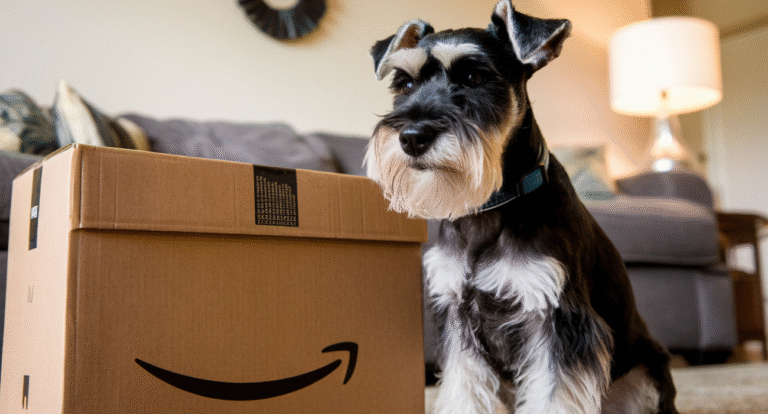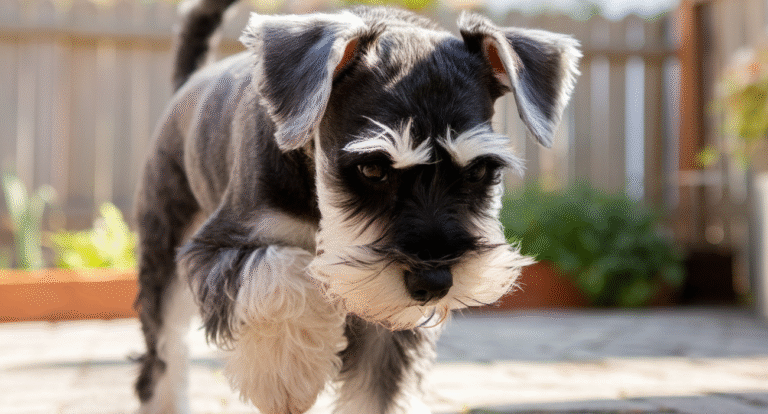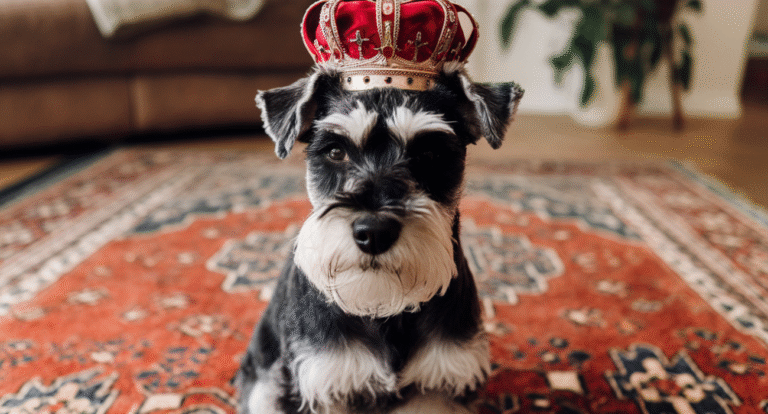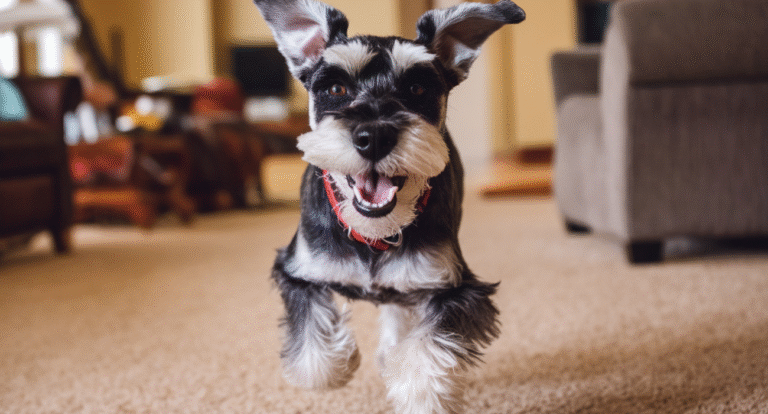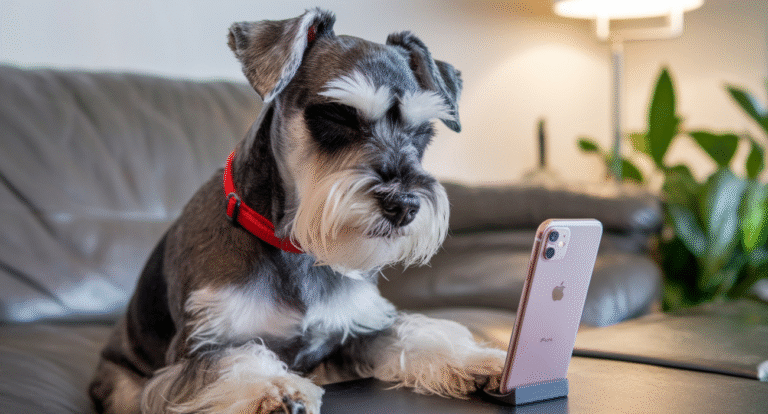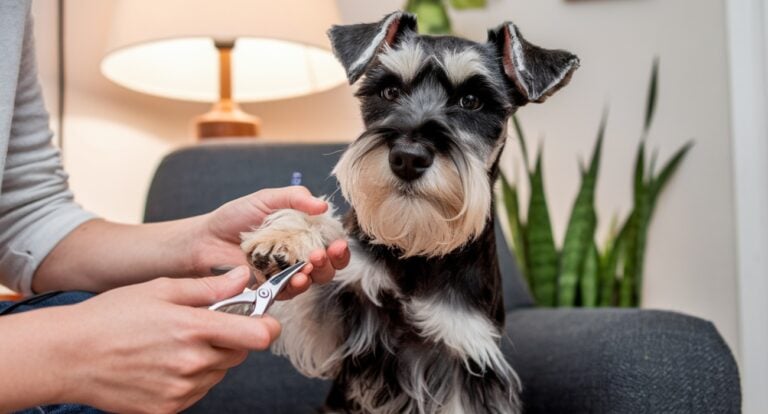Schnauzers can be picky about canine friends. Learn why they act this way and how to help your pup get along better with other dogs.
Some dogs greet every new canine friend with a wagging tail and zero hesitation. Schnauzers, on the other hand, have a bit of a reputation for being the neighborhood watchdog who is not always quick to roll out the welcome mat. But does that mean Schnauzers simply do not like other dogs? The truth is a little more layered and a lot more interesting.
The Personality Factor: Born to Be Bold
Schnauzers are known for their bold personality and strong protective instincts. They were bred to be ratters and guardians, which explains why they can sometimes be suspicious of other animals. This does not mean they are destined to be unfriendly. It simply means they approach new dogs with caution rather than instant trust.
Think about it: these dogs were literally designed to be discriminating. Their ancestors spent centuries deciding which creatures belonged on the farm and which ones needed to be chased away. That selective mindset doesn’t just disappear because Fluffy moved from the barn to the living room.
A Schnauzer’s initial wariness isn’t rudeness; it’s their heritage speaking. They’re essentially conducting a thorough background check before deciding if another dog is worthy of their friendship.
Every Schnauzer is Unique (Just Like Snowflakes, But Furrier)
Just like people, no two Schnauzers are exactly the same. Some adore the company of other dogs and thrive in group play, while others prefer to be the star of the show with little competition. Their unique temperament will influence how they react in social settings.
The size variations within the Schnauzer family also play a role in their social dynamics. Giant Schnauzers might approach interactions differently than their Miniature cousins, and Standard Schnauzers often fall somewhere in between. Understanding your specific dog’s personality quirks is half the battle.
Schnauzer Social Spectrum: Where Does Your Dog Fall?
| Social Level | Characteristics |
|---|---|
| Social Butterfly | Loves all dogs, seeks interaction |
| Selective Socializer | Likes some dogs, ignores others |
| Cautious Companion | Needs time to warm up |
| Independent Islander | Prefers human company only |
Socialization: The Magic Ingredient
Early and consistent socialization is one of the biggest factors in how well a Schnauzer accepts other dogs. Puppies who are introduced to calm, friendly dogs during their formative weeks are more likely to grow into adults who handle social encounters with ease. Even older Schnauzers can improve their social skills with gradual, positive experiences.
The critical socialization period for puppies occurs between 3 and 14 weeks of age. During this window, positive experiences with other dogs can literally rewire their brains for future success. Miss this window? Don’t panic. Adult Schnauzers are surprisingly adaptable with the right approach.
Socialization isn’t just about exposure; it’s about creating positive associations. One bad experience can undo weeks of progress, while one great playdate can open doors to future friendships.
Training and Leadership: Bringing Out Their Best
Schnauzers are intelligent and love to please, but they can also be a bit stubborn. Clear guidance from their owner makes a big difference. Teaching polite behaviors such as sitting calmly before greeting another dog helps your Schnauzer understand what is expected. Consistency builds confidence and reduces the chance of reactive behavior.
The key is becoming the confident leader your Schnauzer needs. These dogs are natural decision-makers, and if they don’t trust you to handle social situations, they’ll take matters into their own paws. Sometimes that means making choices you won’t love.
Training techniques that work particularly well with Schnauzers include:
- Positive reinforcement with high-value treats
- Redirect and reward when they make good choices
- Controlled exposure to new situations
- Consistent commands and expectations
The Schnauzer Social Playbook
Getting your Schnauzer to play nicely with others isn’t rocket science, but it does require strategy. Here are the proven methods that actually work:
Start Small and Smart: Begin with calm, well-behaved dogs for introductions. That hyperactive Golden Retriever puppy might seem friendly, but it could overwhelm your discriminating Schnauzer faster than you can say “play bow.”
Keep It Short and Sweet: Initial meetings should be brief and positive. Think speed dating, not a weekend retreat. Five minutes of successful interaction beats an hour of tension.
Treat Your Way to Success: Use treats and praise to reward polite behavior. The moment your Schnauzer shows interest without aggression, mark that behavior and make it rain treats.
Respect the Comfort Zone: Avoid forcing interaction if your Schnauzer feels uncomfortable. Forced friendships rarely work for humans, and they definitely don’t work for dogs.
Practice Makes Progress: Regular social outings in controlled environments help build confidence. Dog training classes, structured playdates, and calm walks past other dogs all contribute to social success.
Remember: your Schnauzer doesn’t need to love every dog they meet. They just need to be polite. Think of it as teaching good manners rather than forcing friendships.
Common Schnauzer Social Challenges
The Leash Warrior: Many Schnauzers become more reactive on leash than off. The restriction makes them feel vulnerable, leading to overcompensation through barking or lunging. Solution? Work on loose leash walking and practice calm greetings.
Size Sensitivity: Some Schnauzers struggle with size differences. A Miniature Schnauzer might feel intimidated by a Great Dane, while a Giant Schnauzer might accidentally overwhelm a Chihuahua. Matching playmates by size and energy level increases success rates.
The Resource Guardian: Schnauzers can be protective of toys, food, or even their favorite human. Teaching “leave it” and “wait” commands helps manage these tendencies during social situations.
When Professional Help Makes Sense
Sometimes, despite your best efforts, your Schnauzer needs professional intervention. Warning signs that suggest working with a certified dog trainer or behaviorist include:
- Aggressive reactions that escalate over time
- Fear-based responses that don’t improve with gradual exposure
- Reactive behavior that puts other dogs at risk
- Complete shutdown or panic in social situations
Professional trainers understand Schnauzer psychology and can customize approaches that work with their natural instincts rather than against them.
Patience Pays Off
Many Schnauzer owners discover that patience pays off in unexpected ways. While your dog might never be the party animal of the dog park, they often develop deep, meaningful relationships with select canine friends. Quality over quantity is very much a Schnauzer approach to friendship.
These bonds, once formed, tend to be incredibly strong. Schnauzers who find their “person dog” often display loyalty and affection that puts human friendships to shame. They might ignore ninety-nine dogs, but that hundredth connection could last a lifetime.
Your Schnauzer’s Social Future Looks Bright
The question isn’t whether Schnauzers like other dogs; it’s about understanding how they like other dogs. These discriminating canines don’t hand out friendships like party favors, but they’re perfectly capable of forming meaningful connections when the circumstances are right.
With consistent socialization, patient training, and realistic expectations, your Schnauzer can develop the social skills they need to navigate the dog world successfully. They might never win “Most Popular” at the dog park, but they’ll earn respect for their loyalty, intelligence, and that unmistakable Schnauzer charm that makes them such beloved companions in the first place.

